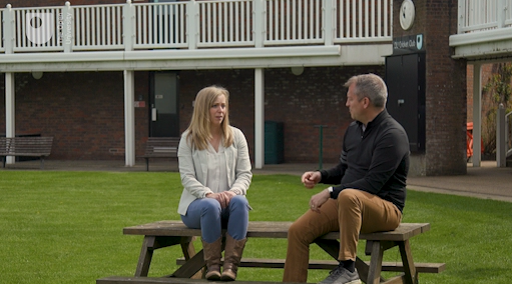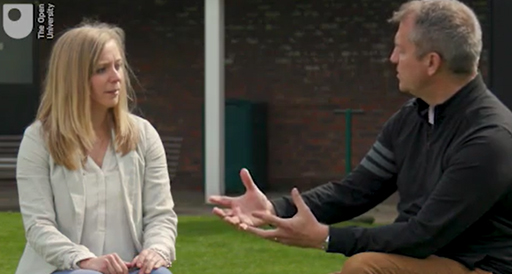1 Can you remember how you improved as a coach?
We are all constantly learning, but are we conscious of how we learn? As you work through this session reflect not only on the extent to which it examines how coaches learn, but also how it informs your learning as a coach developer.
In the following activity you will hear from Stuart Armstrong and Lucy Moore who discuss their ideas about learning and what has influenced their learning and development.
Activity 1 Comparing personal learning stories of becoming a better coach
As you watch this conversation between Stuart and Lucy can you describe what learning means to them, and how they describe it? Stuart and Lucy also mention a range of learning experiences – how might you classify or name the different types of learning they refer to?

Transcript: Video 1
Discussion
Learning is a ubiquitous term. Learning is also complex, personal and continuous, and it can also be hard work. Stuart and Lucy believe learning is about:
- Developing knowledge and skills that lead to a change in an individual’s behaviour which may mean underlying ideas, beliefs and decision-making skills are altered and reconstructed.
- Working with other people; learning is social, and it is about sharing and exploring ideas together and drawing on people’s different viewpoints and perspectives.
- Learning occurs in context and through reflecting on practice – in coaching, learning tends to be a practical process where new ideas and knowledge are tried and assessed, mistakes are made and learned from, and insights from others are adapted and modified to a coach’s own environment.
There are many ways of describing coach learning but one of the most common is the distinction between formal, informal and non-formal categories of learning (Coombs and Ahmed, 1974). These are explained below in the context of comments made by Stuart and Lucy.
Formal learning: these are structured programmes of learning generally with a form of assessment attached to them and designed around a prescribed syllabus. Lucy highlighted how she valued the benefit of her coaching qualifications and training. Most National Governing Body (NGB) coaching qualification courses represent this type of learning experience.
Informal learning: a self-directed process whereby coaches acquire skills and knowledge from experience and the educative influences and resources in their own environment. Discussing issues with other coaches and colleagues, watching others coach, reading books and articles and the use of online resources, podcasts and videos would fall under this category. Stuart explains how this is a very important part of his own learning.
Non-formal learning: this is any organised educational activity outside a formal programme, so this course, a workshop, a conference or a form of continuing professional development (CPD) represent the types of activities categorised under this label. Lucy links this with the value she has gained from her formal qualifications and talks about attending conferences and workshops to see and hear from people she might not seek out herself.
It is not always easy to neatly classify every learning experience into these categories and, as Lucy and Stuart indicate, coaches will combine and connect several different forms of learning to develop their practice.
You have so far heard two views about coach learning but now you explore an entirely different perspective on learning. It comes from a craftsperson in another complicated environment: a master chef working in a professional kitchen.

